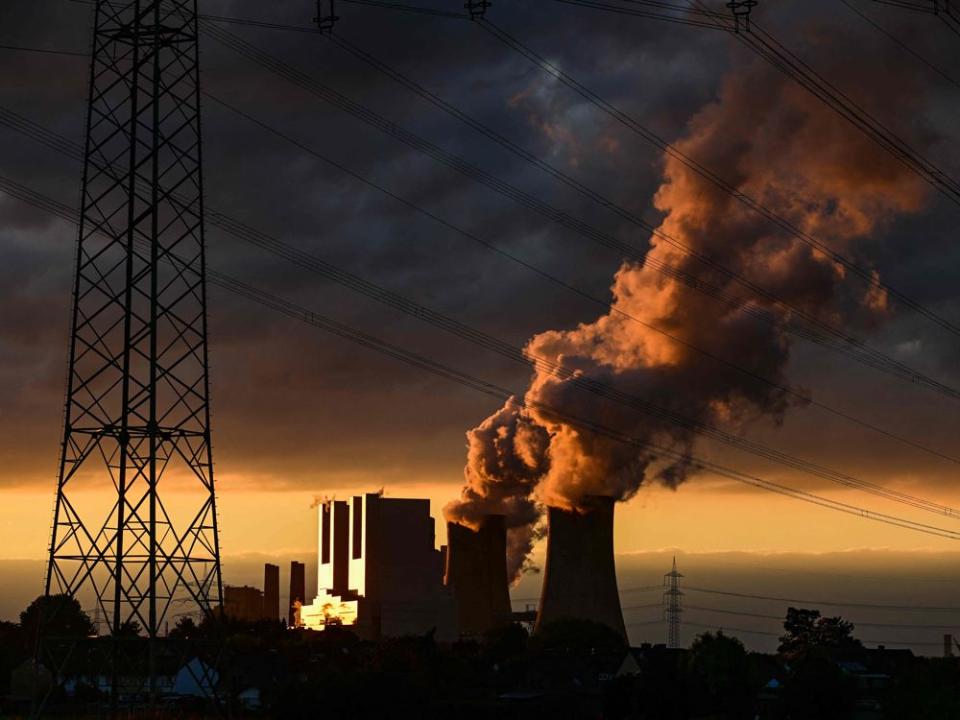Philip Cross: The moral argument for fossil fuels

The latest book from Alex Epstein, American libertarian author and founder of the Center for Industrial Progress, elaborates the unapologetic arguments for fossil fuel consumption that he first made in The Moral Case for Fossil Fuels. In his latest offering, Fossil Future: Why Global Human Flourishing Requires More Oil, Coal, and Natural Gas — Not Less, he frames the debate about fossil fuels, prosperity, and climate change (which he pointedly doesn’t deny) from the point of view of a philosopher, not the scientists and economists who dominate the debate.
The perspective philosophy brings is summarized in an exchange Epstein had with Barbara Boxer, the Democratic Senator from California. Boxer challenged his credentials, saying “this is the Senate Environment and Public Works Committee. I think it’s interesting we have a philosopher here talking about an issue,” to which Epstein justified philosophy’s relevance by saying its role was “to teach you how to think more clearly.” Clear thinking about fossil fuels and the importance of energy to humans is in short supply in all public forums today.
Epstein argues most discussion about fossil fuels is muddled and wrong-headed because the elites who control the debate, including media, pop-scientists, politicians and teachers, all simplify, misrepresent and sensationalize the often contradictory or inconclusive results of scientific research in this area. Worse, they present only the negative side effects of fossil fuels, ignoring their huge benefits in extending life expectancy, raising living standards and enabling the enormous recent increase of human population.
There is a clear contradiction between this all but complete one-sidedness and how the same elites evaluate vaccines and antibiotics — which is to concede they have some side effects but to conclude their overall benefits overwhelm the downside. Epstein argues that applying the same balanced approach to fossil fuels should lead to a similar conclusion — yet elite opinion fiercely resists acknowledging the fuels’ benefits.
One symptom of this anti-fossil fuel bias is how erroneous forecasts never lead to accountability. In the 1970s, experts cautioned about the impending doom of global cooling — just as global temperatures began to rise. Then groups such as the Club of Rome claimed the world would soon run out of fossil fuels — only to see global production expand as technology made new sources readily available. Still others, such as Greenpeace, warned that pollution from fossil fuels would poison our air, land and water — though pollution levels have since fallen. Meanwhile, the actual trajectory of global warming has not followed the path predicted by most models, which is hardly surprising given their embryonic state.
From his philosopher’s perspective, Epstein argues we should be concerned about climate danger not climate change. The planet has long been an inhospitable place for humans. Far from being a Garden of Eden, life before the widespread deployment of fossil fuels truly was “nasty, brutish, and short” in the words of Thomas Hobbes. Thanks to improvement in everything from shelter to clothing, climate-related deaths have fallen 98 per cent over the past century. The places that remain most at risk from climate danger are poor countries such as Bangladesh, not rich communities living along coastlines. The high incomes generated by energy consumption allow humans to protect themselves from natural dangers and diseases.
By focusing on climate change and not climate danger, environmentalists end up condemning all human impacts on the planet. According to Epstein, this leads to the blanket rejection of all energy sources, not just fossil fuels. The result is the near impossibility of building nuclear reactors (despite their having the safest record of any energy source) and growing resistance even to renewables such as hydro dams and solar and wind farms. The low energy density of renewable energy sources compared with fossil fuels requires that they take up huge tracts of land, which spawns opposition due to the loss of green space and wilderness. The logical conclusion of opposition to all forms of energy development is that we humans suffer either an enormous drop in our living standard as we return to Hobbes’ state of nature or a large involuntary reduction in our numbers. Epstein calls either outcome “anti-human.”
Epstein argues it is immoral to condemn three billion people to remain in extreme poverty of less than $2 a day by denying them access to the benefits of more energy from fossil fuels. In practical terms, improving their material lives means developing fossil fuels, which have a huge advantage over renewable alternatives in affordability, reliability and scalability.
The reason fossil fuels account for over 80 per cent of global energy consumption today, just as they did 50 years ago, is simple: they are the best source of energy. Even as rich countries limit their use of the very fossil fuels that underpinned their own flourishing, emerging nations consume more of them than ever. Energy — the ability to do work — is the basis of economic growth and improved living standards. Instead of apologizing for energy consumption, Fossil Future argues the moral thing to do is develop as much energy as possible.
Philip Cross is a senior fellow at the Macdonald-Laurier Institute.

 Yahoo Finance
Yahoo Finance 